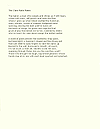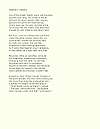PIVOT POINTS | First
Generation Poet
Dave Smith
Herman Melville notes in his essay on his friend
Nathaniel Hawthorne that he would have been a better writer had
he lived more with writers, had more friends who might have acted
as intimate and concerned readers. He meant this, too, as an appreciation
of what that friendship had meant to his own writing and, we might
say, his soul. Writers write out of and because and even against
the writing done by others; they are nudged, urged, impelled, driven,
and lured by what they admire in the art of their colleagues. Writers
who teach emerging writers are closer to this phenomenon than anyone.
Their students become goads, teachers, influences, setting new
bars to be surpassed, new heights to be achieved.
No better example exists of this line of continuity,
I suppose, than that beginning with John Crowe Ransom. Professor
Ransom established a literary community at Vanderbilt University
and there, it might be said, teased into existence what has come
to be called "Southern" poetry. His student Robert Penn
Warren wrote the poems which are acknowledged by all hands as the
prototype for the southern poem and I have publicly admitted that
Warren's achievement in both narrative and lyric poetry, emphatically
of the moral and ethical inquiry, has been for me a constant guide.
It has been said, and I hope that it is so, that my own student
T. R. Hummer has carried on in this direction, for I believe it
to be consequential in our times. I think this art is a carrier
of values that matter to our social future.
This is not to say, however, that anyone found
in the line I describe does only what the predecessor has done.
That would be a waste of energy and potential which any artist,
in any medium, must find loathsome. It only matters that the individual
builds on what has existed, extends in time what is useful, and
modifies it according to the needs of his or her personality and
his or her environment. What Melville knew and implied is that
we need tales to help us live as fully as possible in a world always
more difficult than it ought to be and we need our truest friends
to help us make those tales. Those friends compose the line, the
gifts and structures and imperatives of performance, which enables
us. We must be grateful for their assistance. 
| |
|
|
|
|
|
 |
 |
 |
 |
 |
 |
Commentary
 |
The Clam-Rake
Room
 |
|
Warren's
Flowers
 |
|
Las Flores
de Robert
Penn Warren
 |
 |